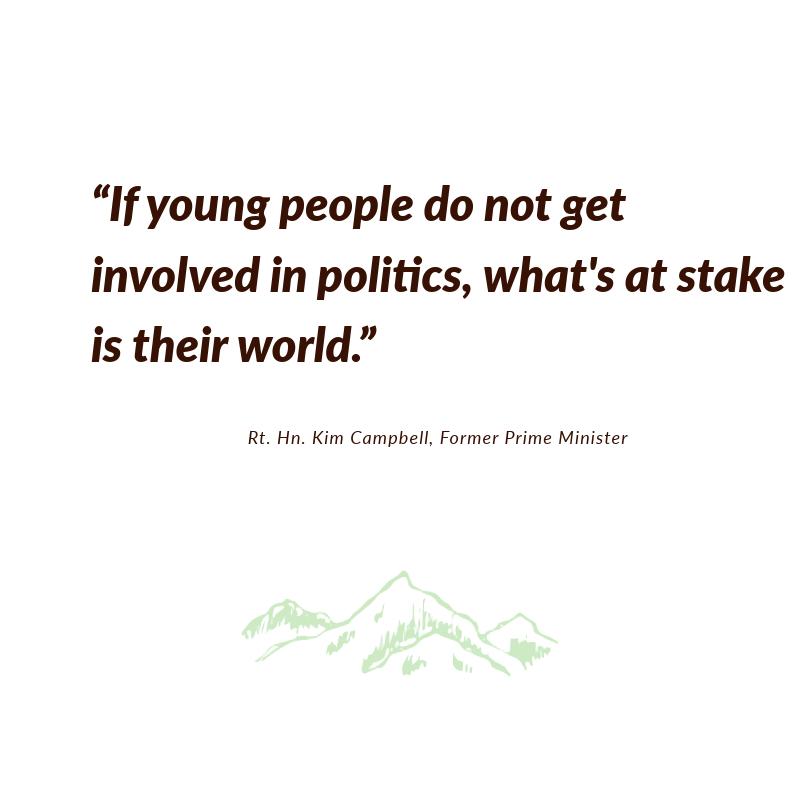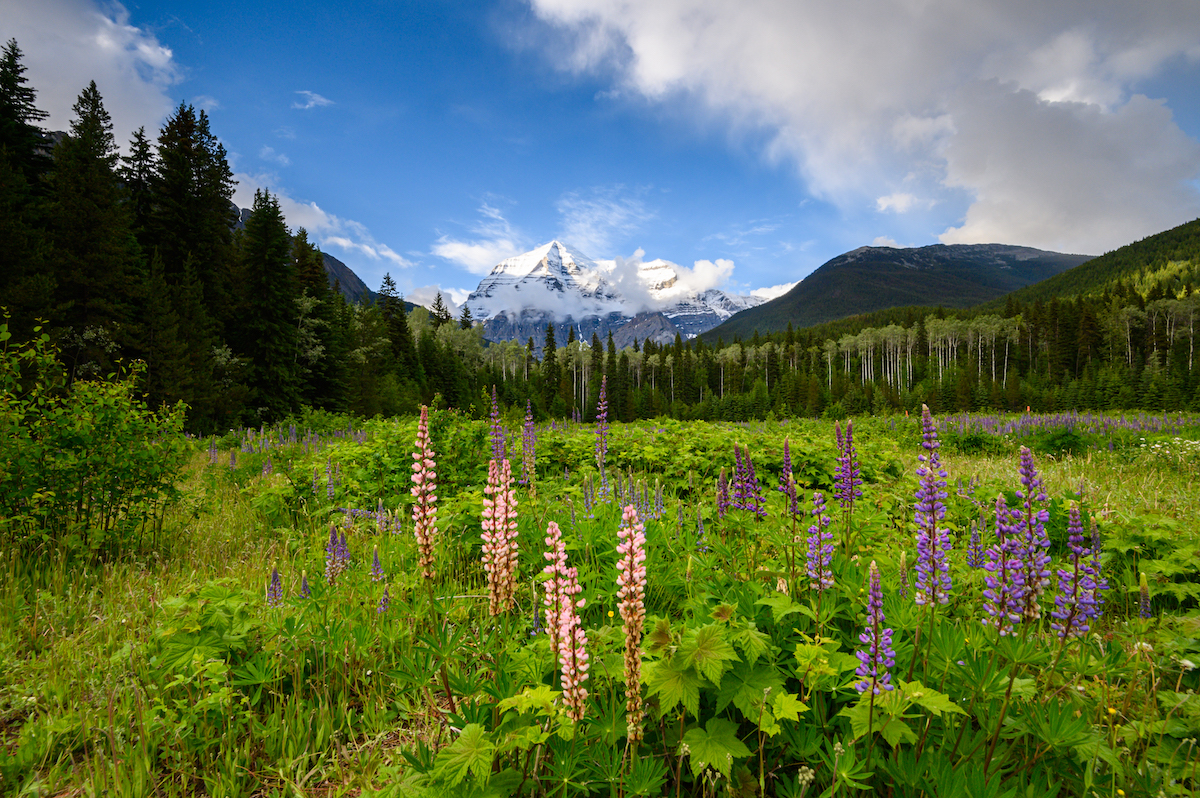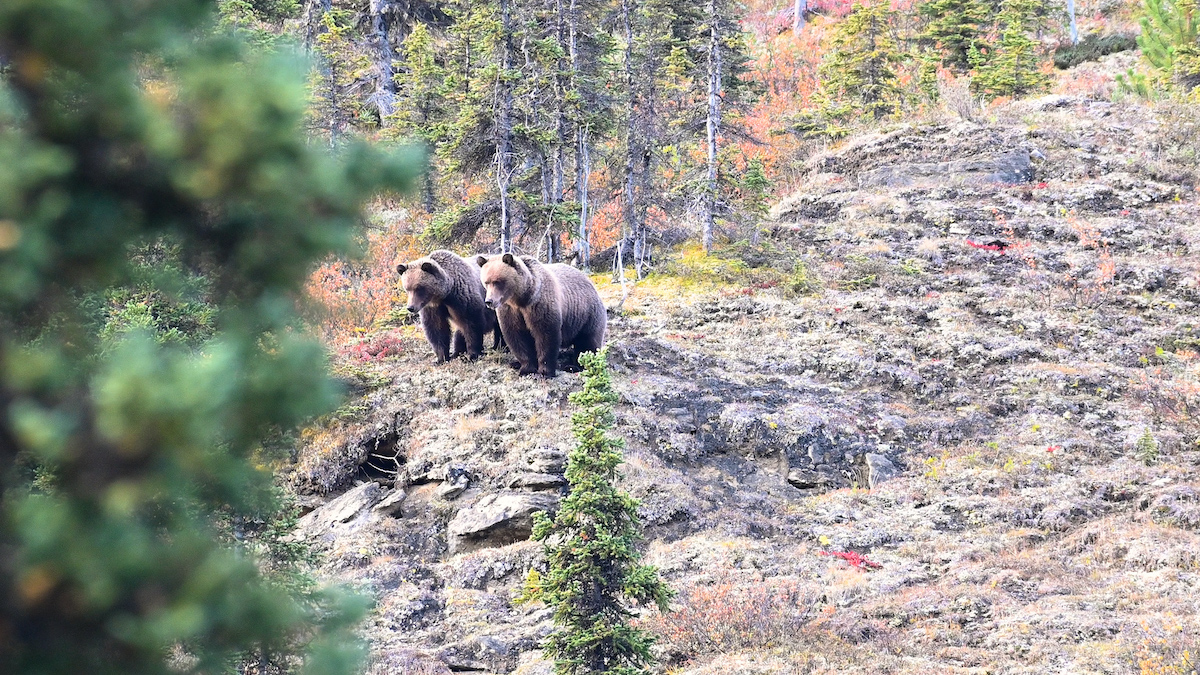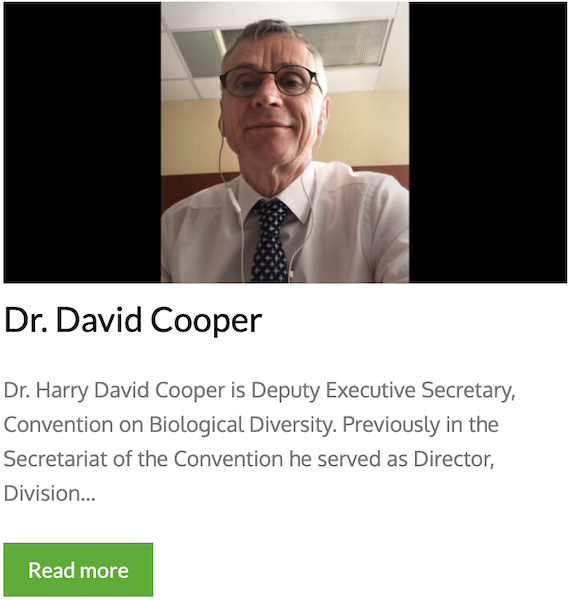The System of Things
Chapter One
Kim Campbell understands systems.
“Obviously there have to be things done on a large scale (to protect biodiversity) – species preservation, reforestation, wetlands preservation.”
Right, she gets why natural systems matter, but Kim Campbell also knows a thing or two about how our political system works. After all, she was Canada’s 19th prime minister.
“At the end of the day, the policies that we live by – the rules that we live by – are made by those to whom we give the responsibility to govern. So, if you think you can be all the things you want to be without paying attention to politics, you’re deluded. You can’t.”
No matter the system, Kim Campbell understands that they’re complex and gets why systems change can feel impossible at times, but she also knows we can impact our systems – natural or political – for the better.
“I think we are living in dark times, but it’s not the first time we’ve lived in dark times. And it’s been the courage and steadfastness of particularly young people that have helped us to get through it.”
Kim Campbell’s right. And yet, as she points out, that’s only happened – can only happen – when we engage with the systems we often don’t understand; the systems we often love to hate.
“I had a responsibility to participate and, of course, as I got older, that translated into the democratic governance of my society. I felt if I could make a contribution, then I should.”
Like our two bears, Kim Campbell’s story didn’t start at the top. It was a long journey of ups and downs. It was a series of steps that started small and allowed a young Kim Campbell to better understand Canada’s system of governance.
“I started my political career on the school board. After all, the decisions people make in local government – whether it’s school board or parks board or city council – these affect people directly every day. It’s actually a great place to learn your political instincts because you don’t go someplace else to serve your constituents; they’re right there (where you live).”
But in finding her voice, Kim Campbell was able to have significant influence on Mount Robson and the planet, even if indirectly, because of the roles she played in our parliamentary system.
“I was most powerful when I was in parliament because I was Minister of Justice and Attorney General for three years. So, I had the responsibility of making amendments to the Criminal Code and was able to do some very significant things there.”
Kim Campbell is proof that no matter how big or incomprehensible a system might seem, it’s always possible to impact and shape it – always possible to make it better.
“I think you don’t always even know what impact you’re going to have.”
Which is why learning about and engaging with our system matters.

“Power is real”, Kim Campbell tells us. “Somebody’s going to have it. And if you would exercise it ethically, and in the national interest, why shouldn’t it be you?”
After all, as our former prime minister argues, “If young people do not get involved in politics, what’s at stake is their world.”
When you think about it, politics – our democratic system – is a great metaphor for biodiversity.
We often misunderstand it. We often choose to ignore it. We almost always assume our personal decisions don’t really matter or can’t really make it better. But as Kim Campbell argues, “If you think you can be all the things you want to be without paying attention to politics, you’re deluded. You can’t.”
That’s true of politics, but it’s also true of biodiversity. So too is this:
“What is rich about the government is when you have people from all parts of the country and where you have to learn to listen”, Kim Campbell explains.
Indeed, the diversity within our democracy – the multitude of perspectives and opinions that shape our debates and decisions – is like the diversity we find in ecosystems. And we need to understand that diversity in order to ensure that entire systems function as they should.
“How we do things is integral to what we do. Politics isn’t an abstract exercise.”
In other words, decisions matter. They shape our systems – political and natural. And when we don’t realize how our decisions impact others, there will be consequences, as Kim Campbell outlines.
“We can’t be naive about these things. You know, I’ve seen the alternative to democracy. And I’ve seen the price that people have paid for us to be able to do what we’re doing. And (our system) is not perfect, and there are a lot of idiots who do (politics). But there are also wonderful people who do it. And in every election more people lose than win, but the fact that the voters have a choice – that people will stand for their party and that they have to articulate what they stand for – that is so important.”
Kim Campbell is right: Democracy is precious. It needs to be respected and nurtured. We need to work with it, and do better by it, for the sake of our country, our world and our future.
Here’s the thing though: the same goes for our biodiversity.
And whether we’re speaking about the health of our democracy or the health of our planet, Kim Campbell believes “youth like you paid the ultimate price to defeat fascism, to defeat the forces that did not want democracy, did not want the rule of law, did not want constraints on those in power. So, I think we have an obligation to the people who made that sacrifice.”
Indeed, we have an obligation to do better by both people and nature for the sake of our democracy, for the sake of our future. But how?
Kim Campbell says, “There’s a lot of different ways that you can be a contributor to a democratic system. One is to vote, to take the trouble to vote, and to create a culture in your family that voting is something very important. That is part of your duty as a citizen.”
As importantly, our former conservative prime minister urges us to “learn how to be a discerning and discriminating consumer of scientific research.”
“I’m worried about the anti-science, not just in terms of the climate but also in terms of anti-vaxxers.”
And Kim Campbell continues, “You can’t be a ‘don’t confuse me with facts’ kind of person. I think the first thing you have to do is have a respect for reality, for facts, for data.”
That’s why our former prime minister believes this class matters, no matter what you want to do in this life. After all, she says, “It’s not that we don’t have answers, we do.”
What does that mean for us? Well, Kim Campbell reminds us, “We can’t all be in parliament. We have to decide what it is that that we can contribute and want to contribute. You know, if you’re somebody who has your heart set on being a doctor, you will take a different approach than somebody who wants to get a bachelor’s degree in science and then go on into direct engagement. The thing is, find what your passion is, find out what you’re good at, what you feel you can do to contribute, and then do it.”
Biologist Laura Kennedy agrees.
“You don’t have to fit into this box. Decide how you want to make your impact and go for it.”
But to have impact, we need at least a baseline understanding of the stakes, Laura argues.
“You need a good understanding of the system you’re trying to fix in order to create lasting change. You need to know what’s happening and you need to know where it’s vulnerable.”
That’s true for any system, but most especially our natural systems.
“I think what the public needs to understand more is how valuable these wildlife populations actually are (and what that means for) people, both on an economic level, but also on an intrinsic level.”
Laura adds, “What happens if these populations start collapsing, especially the ones that we rely on for the economy?”
It’s why Laura believes we need scientists to help us better understand biodiversity and what threatens it.
“There is a lot of research that still needs to take place in order to understand what’s happening with all of these very important and valuable populations.”
Laura believes we need to champion science and learn from science, but we also have to understand the limits of science.
“There’s a lot to learn from the scientists who’ve been doing this for years, but we don’t always have enough time to understand everything that’s going on in an ecosystem.”
In other words, Laura argues, inquire, learn and debate – absolutely – but don’t wait to act.
“We don’t have a lot of time. We need to act faster.”
Because we still have time to safeguard our natural systems – our biodiversity – as David Cooper, the Acting Executive Secretary of the United Nation’s Secretariat of the Convention on Biological Diversity, tells us.
“Certainly it is possible.”
But David adds that protecting biodiversity?
“It’s hard. I don’t want that to be disempowering, but people need to recognize that these are complex issues.”
How so? David explains, “It’s unlikely that we’re ever go to protect enough of the earth through formal protected areas alone (to sustain biodiversity). We need to be looking at how we manage broader spaces.”
David continues, “If we look at Canada, we have this vast boreal forest. It’s unlikely that all of that is going to be designated as a protected area. We need to maintain practically all of that boreal forest and maintain it as boreal forest, whether or not it’s a formal protected area, if we’re going to maintain the life support systems of the planet.”
Which is a very tough ask, especially of those who live near and rely on the boreal forest for work, It’s why David says we need “to realize the value of those ecosystem services (to make better decisions). Those contributions that people get from nature are not currently marketed.”
David urges, “As citizens talk about this issue. Debate it. Think of how you can act directly, as consumers or as volunteers or as actors in local communities, and think of what you can do that is necessary both to inspire each other to act, but also to make sure that it adds up to something at scale.”
It’s about now that you might say, ‘I’ve heard this before’. Maybe it was with a different issue, but the message is basically the same: The problems are dire; we must act or else.
And maybe, when you hear that, you feel that one person can’t make a difference, so there’s no point acting.
Or maybe you think we’ve been hearing about species loss forever and nothing really bad has happened yet, so it’s probably not that bad now.
To that, David says, “It’s good to be skeptical. You should be skeptical. You should be skeptical of all levels of authority and government, whether that’s international, national or local; whether it’s governmental or it’s corporate. But don’t be cynical.”
Remember our two bears? They shouldn’t have been able to influence this system in a major way, especially at their age. But they are. Just as other species influence their ability to live and thrive.
And maybe if these two ceased to exist it wouldn’t matter. Or maybe if grizzly bears disappeared from this landscape it would only matter a little. And maybe the consequence of no grizzlies here would only mean this ecosystem would struggle to function, not all ecosystems.
But what grizzly, what species, what ecosystem is one too many to lose?
The truth is we don’t know.
And that’s the brilliance of systems. And the complexity.
Two undersized bears, an unknown insect or one single person has the power to change a system, locally or even globally. But that only happens when we work to overcome cynicism or apathy and actually understand how we fit into our systems. And how we impact them.
And if we can leave our mark on Mount Robson or our community or Canada or the world – and we can – why not try for better? Why not work to find a new way of looking at an old, if growing, problem? Why not find a new path forward that can change our system for the better, for all?







